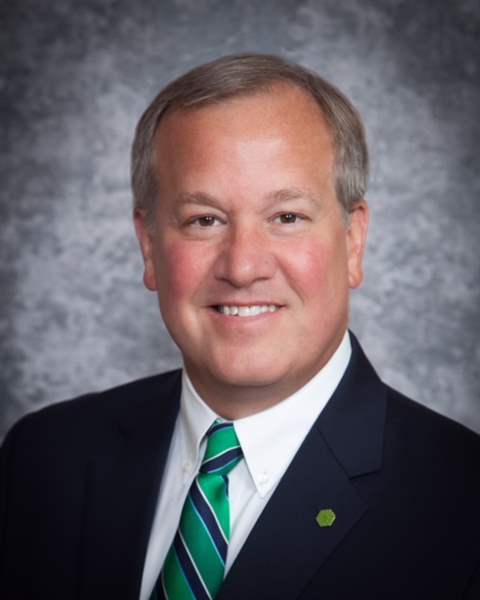
Huntington Investment chief bullish on national, regional economy
2/8/2018
John Augustine
Huntington Bank’s chief investment officer said Thursday he’s bullish on both the national and regional economy, as he believes major tax cuts to corporations will increase their capital expenditures.
Speaking at the Toledo Club to present his economic predictions for the year, John Augustine said he believes wage growth will expand and global GDP growth will increase. Corporate tax cuts and repatriation of offshore funds by corporations because of the tax plan will have positive impacts on manufacturing in particular, although he said he believes stagnation in the automotive sector could be a drag on northwest Ohio’s economy.
“We think the tax bill will have positive effects on the U.S. economy, all the way down to manufacturing in the region,” Mr. Augustine said.
Recent market volatility is less a threat to the overall economy than a pullback of stock prices and other assets that “got ahead of themselves” in January, he said. March 11, the beginning of Daylight Saving Time, is a good time to adjust 401(k) investments between stocks and bonds, as stocks tend to swoon over the summer months.
Wages are rising, causing some concern that inflation will increase and prompting the Federal Reserve to hike interest rates. But Mr. Augustine said he expects the U.S. economy’s expansion, which started in mid-2009, to continue through at least 2018.
While bonuses announced by some companies after the tax bill passed are temporary, some companies have announced permanent improvements for employee pay and benefit packages, including wage increases and higher 401(k) matches. Some companies have increased those retirement account matches from the low to the high single digits, Mr. Augustine said.
How capital expenditures will ultimately impact the workforce is hard to predict, Mr. Augustine said, as manufacturing jobs tend to pay better than service jobs, but automation of work may mitigate how much the labor force benefits from those investments.
“There’s going to be change in the global workforce going forward,” he said. “We don’t know what that looks like yet.”
Contact Nolan Rosenkrans at: nrosenkrans@theblade.com, 419-724-6086, or on Twitter @NolanRosenkrans.